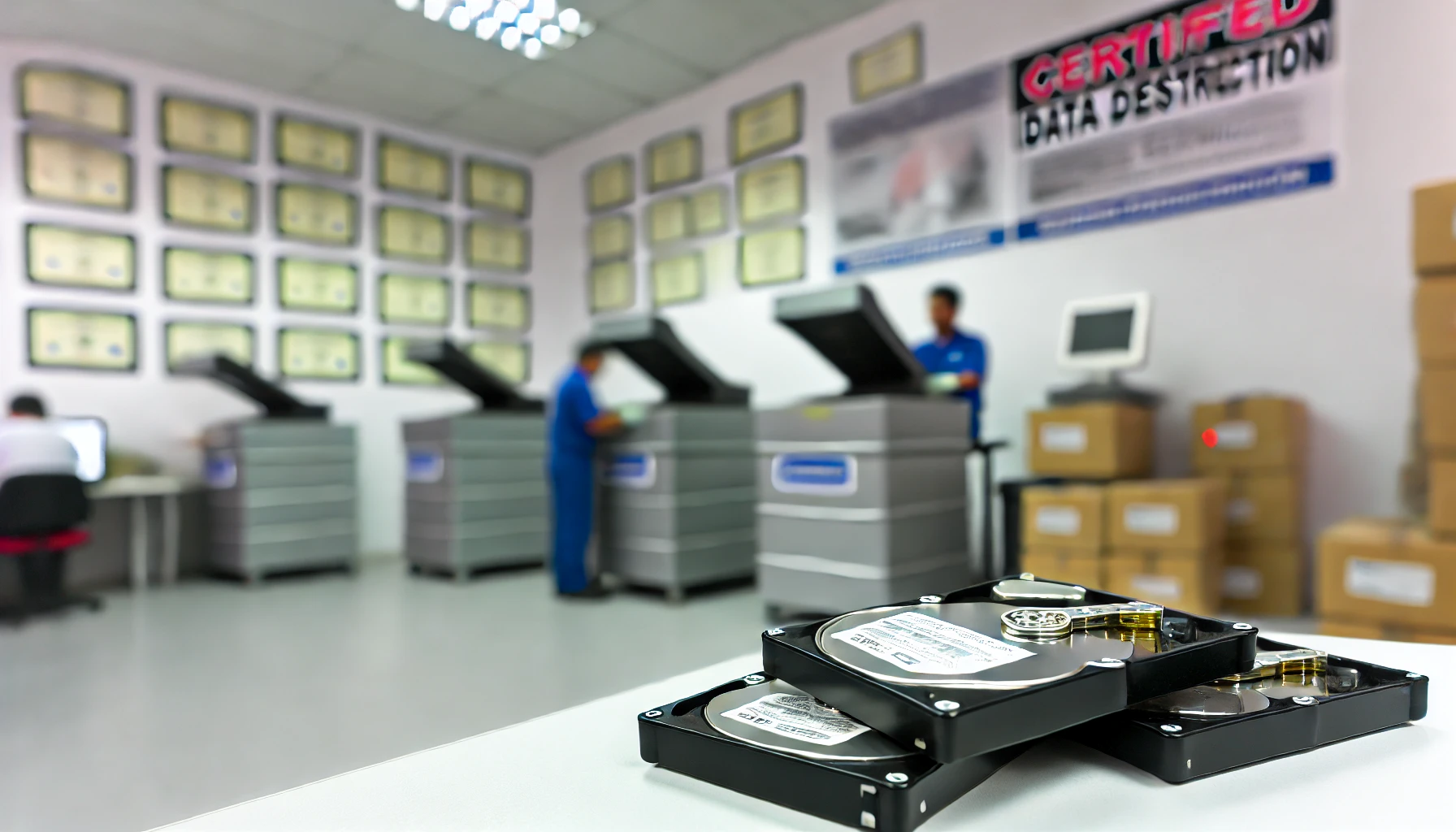In today’s digital age, protecting sensitive data is more crucial than ever, making hard drive shredding certifications a key topic for businesses and individuals alike.
This article explores prominent certifications like NAID AAA and ISO, detailing their requirements, benefits, and limitations.
It also covers industry-specific certifications related to regulations such as HIPAA and FACTA.
Whether you’re looking to safeguard your data or ensure compliance, understanding these certifications can help you make informed decisions.
What are Hard Drive Shredding Certifications?
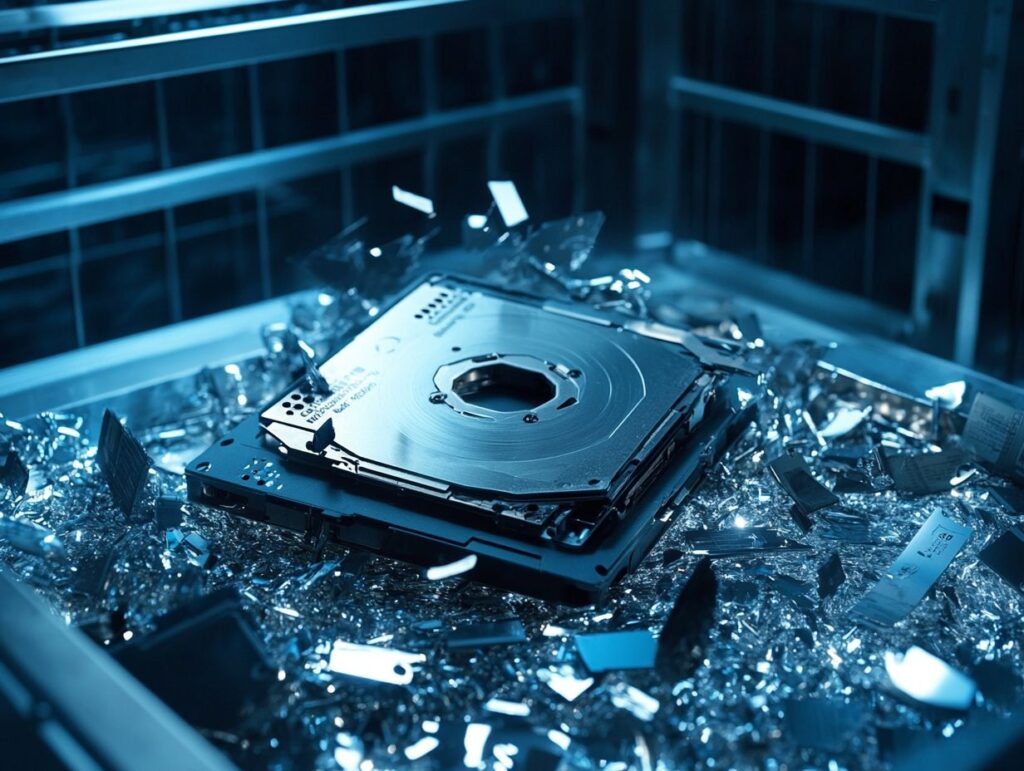
Hard drive shredding certifications are critical standards that guarantee secure data disposal and compliance with various regulations, including GDPR and HIPAA. These certifications assure businesses that their data destruction practices meet industry standards, thereby protecting sensitive information from identity theft and data breaches.
Furthermore, they ensure a reliable shredding process that maintains client confidentiality while adhering to rigorous shredding standards and environmental regulations. Providers that have achieved these certifications demonstrate a commitment to information security, risk management, and the safeguarding of customer trust.
NAID AAA Certification
NAID AAA Certification is a highly esteemed credential that confirms a provider’s dedication to maintaining high standards in hard drive shredding and data destruction practices, particularly in relation to compliance with data security regulations.
This certification ensures that organisations adhere to rigorous shredding standards and undergo regular security audits, thereby safeguarding the confidentiality of client information.
The NAID AAA certification process involves a comprehensive assessment of a provider’s operational security, ensuring that sensitive data is managed and destroyed in accordance with industry best practices.
Overview and Requirements
To attain NAID AAA Certification, providers must adhere to rigorous requirements that encompass all facets of hard drive shredding and data destruction, thereby demonstrating compliance with established shredding standards and operational protocols. This includes the maintenance of a secure chain of custody throughout the data lifecycle, the implementation of regular security audits, and the provision of comprehensive employee training on information governance.
Certified providers are obligated to develop and adhere to best practices centred on risk management and confidentiality, which significantly enhances their credibility within the industry. They are also required to establish robust protocols for the secure transportation of materials, accompanied by meticulous documentation processes that track all destruction activities.
Employee qualifications are integral to this framework, as team members must undergo comprehensive background checks and specialised training programmes. Ultimately, adherence to these standards not only reinforces the security of sensitive information but also highlights the commitment to integrity that clients expect from their data destruction partners.
Benefits and Limitations
The advantages of NAID AAA Certification are significant, providing enhanced client trust, compliance with industry regulations, and assurance of secure data destruction practices that reduce the risks associated with data breaches. However, there are limitations, including the necessity for continuous compliance and the costs associated with certification audits.
Obtaining NAID AAA Certification enables providers to showcase their commitment to industry best practices, thereby enhancing their reputation within the marketplace. Clients are increasingly inclined to seek certified providers, as this certification assures them that their sensitive data will be managed responsibly and securely. This level of trust not only fosters long-term relationships but also distinguishes certified providers from competitors who may not possess similar credentials.
It is essential to acknowledge that maintaining this certification requires ongoing training and rigorous oversight to ensure compliance, which can be resource-intensive for certain businesses. Additionally, there is the potential for increased scrutiny during audits, which may present challenges for providers who are not accustomed to such regulatory environments.
ISO Certification
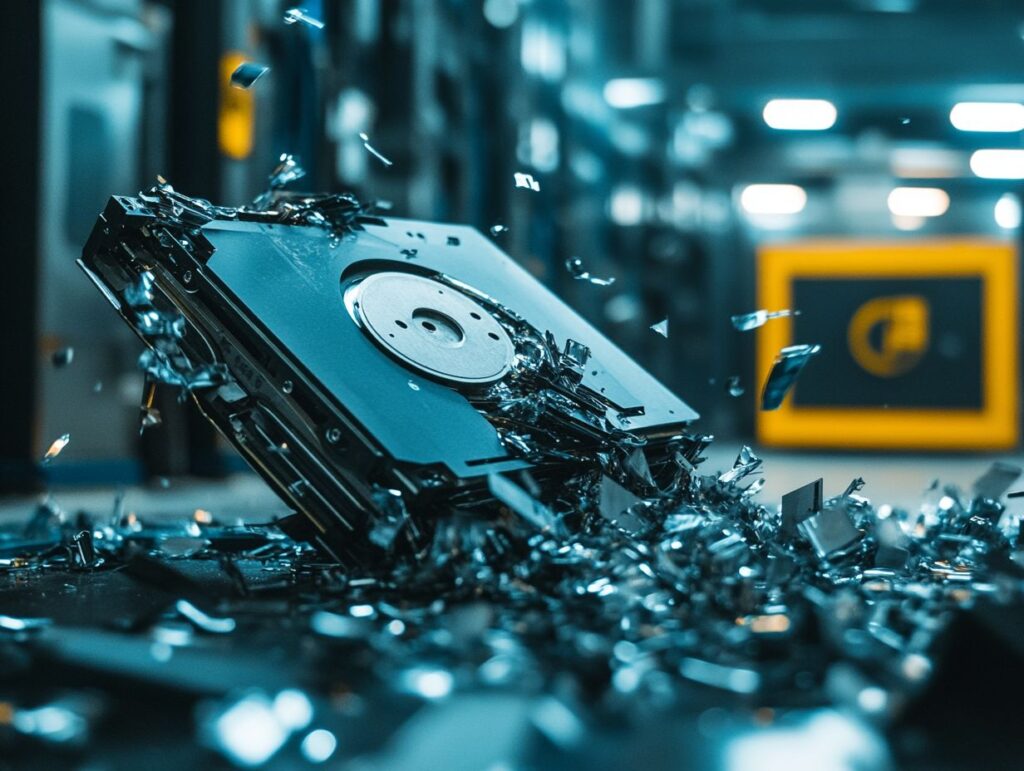
ISO Certification establishes a comprehensive framework that enables organisations to implement effective hard drive shredding and data destruction practices in accordance with international standards. This ensures compliance and protects sensitive information throughout its lifecycle.
By obtaining ISO certification, providers affirm their commitment to information security, risk management, and the establishment of a secure chain of custody for data handling and disposal.
Overview and Requirements
ISO Certification for hard drive shredding entails adhering to specific requirements that delineate best practices in data destruction, ensuring that organisations comply with established shredding standards. This process involves the implementation of systematic procedures for secure data disposal and regular audits to confirm adherence to relevant regulations.
Obtaining this certification not only affirms a provider’s commitment to data security but also fosters trust with clients who rely on them for the handling of sensitive information. Organisations must engage certified providers that implement shredding procedures meeting rigorous ISO standards, thereby ensuring the irretrievable destruction of every piece of data.
Thorough documentation throughout the shredding process is essential; this often includes certificates of destruction that validate compliance. Ultimately, adherence to these stringent guidelines mitigates the risk of potential data breaches, thereby reinforcing the overall integrity of an organisation’s information management practices.
Benefits and Limitations
ISO Certification provides numerous advantages, including enhanced operational security, increased client confidence, and adherence to international data protection standards, which are vital for effective hard drive shredding and data destruction. However, it is important to recognise certain limitations, such as the costs associated with certification and the continuous requirement to maintain compliance.
By adhering to ISO standards, organisations can not only protect their operations from potential security breaches but also demonstrate a commitment to best practices in data handling. This commitment can significantly enhance client trust, as customers are increasingly discerning about the companies they choose to partner with, often favouring those that prioritise data integrity.
Despite these advantages, organisations must carefully consider these benefits alongside potential drawbacks, such as the time investment necessary for training and audits. Additionally, engaging with certified providers may involve higher initial costs, although this investment can ultimately provide long-term assurance through robust compliance measures.
Certifications for Specific Industries
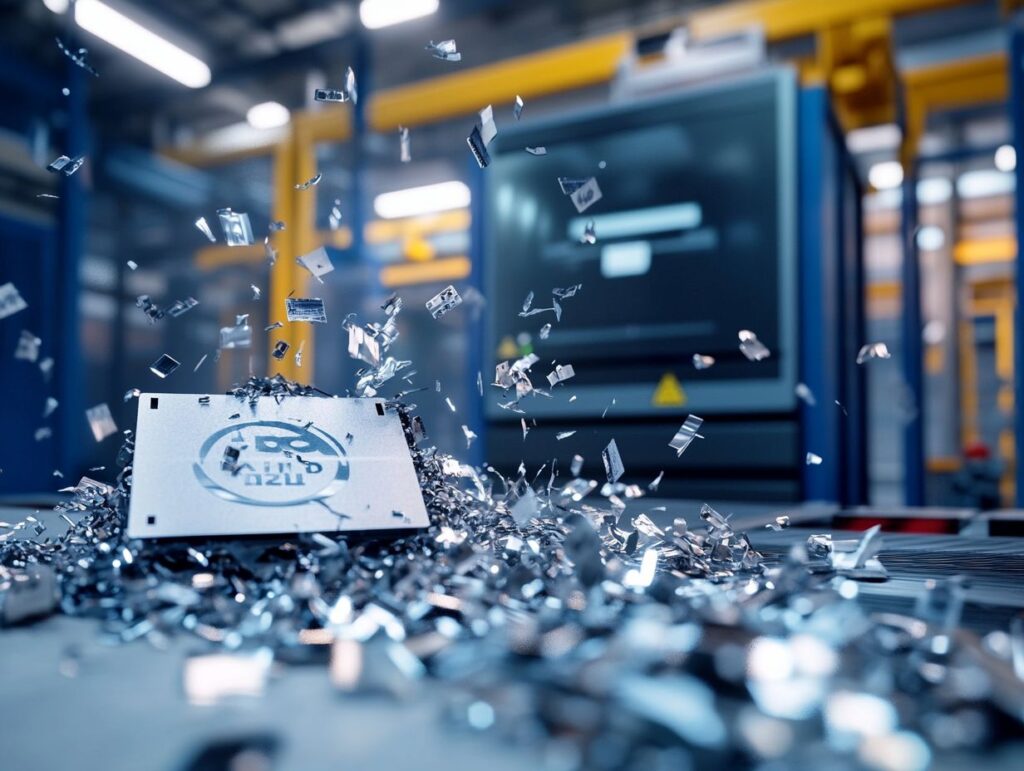
Numerous certifications are tailored to specific industries, such as HIPAA and FACTA, to ensure that hard drive shredding and data destruction practices meet sector-specific compliance requirements and uphold stringent data security measures.
These industry certifications are essential in directing certified providers towards the implementation of best practices for information governance.
HIPAA, FACTA, and Other Regulations
HIPAA and FACTA are essential regulations that dictate the appropriate handling and destruction of sensitive data, significantly impacting hard drive shredding practices and compliance requirements for certified providers. Adhering to these regulations mitigates risks associated with data breaches and reinforces a commitment to information security.
Organisations must ensure that their data destruction methods not only comply with the standards established by these regulations but also reflect a proactive approach to safeguarding client information. Non-compliance can lead to severe penalties, making it imperative for businesses to collaborate with certified providers specialising in secure data destruction.
Engaging certified hard drive shredding services guarantees that sensitive data is irretrievably erased, thereby enhancing client trust and protecting against unauthorised access. Implementing rigorous data security measures aligned with these regulatory requirements is fundamental to maintaining a responsible reputation in today’s data-driven economy.
Choosing the Right Certification for Your Needs
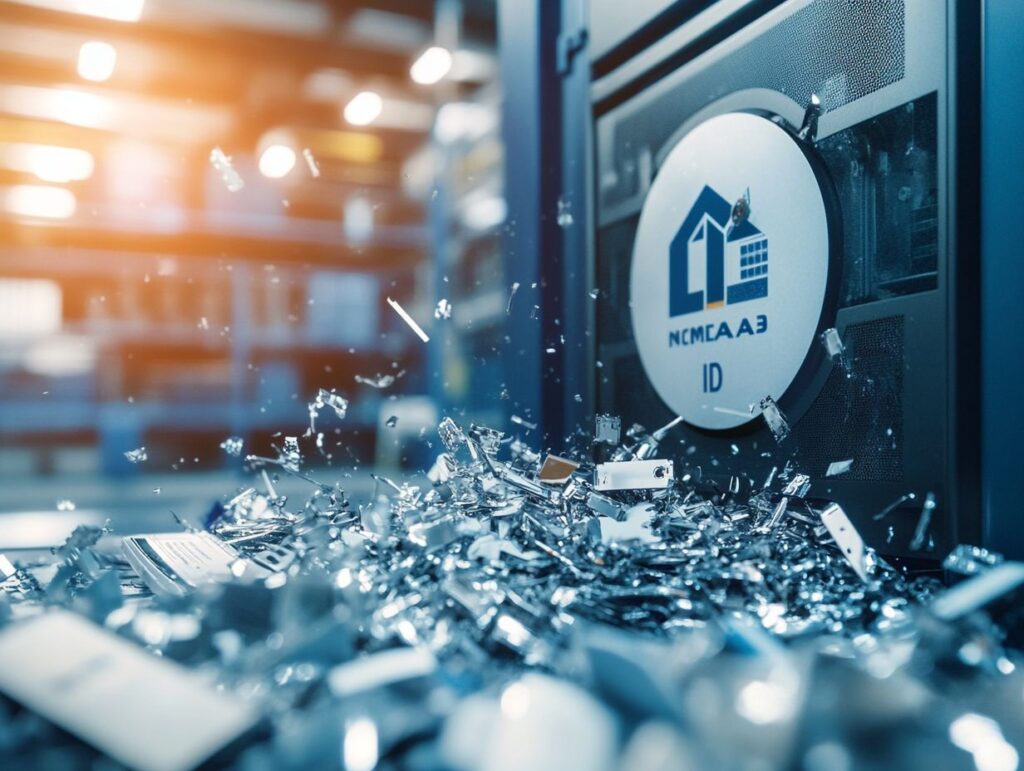
Selecting the appropriate certification for hard drive shredding is essential for ensuring that an organisation’s data destruction practices comply with regulatory requirements and align with specific operational needs.
Conducting a comprehensive needs assessment enables organisations to determine the most suitable certifications based on factors such as data privacy regulations, industry standards, and risk management strategies.
Factors to Consider
When selecting a certification for hard drive shredding, it is essential to consider several factors, including compliance with relevant regulations, the reputation of certified providers, and the specific data destruction requirements of the organisation. A thorough evaluation of these elements will ensure that the chosen certification aligns with best practices and operational efficiency.
Organisations should scrutinise the certifications held by potential providers to verify that they meet industry standards, thereby enhancing security and providing assurance.
Understanding the specific types of data involved—such as personally identifiable information or proprietary business data—can assist in tailoring data destruction methods to meet compliance obligations and mitigate risks effectively.
The selection of a provider should be based on their proven track record, including client testimonials and case studies, which demonstrate their capability to deliver reliable and effective data destruction services.
Frequently Asked Questions
What is NAID AAA certification for hard drive shredding?
The National Association for Information Destruction (NAID) offers AAA certification for companies that provide secure data destruction services, including hard drive shredding. This certification means that the company meets strict standards for employee screening, equipment and facility security, and operational procedures.
What is ISO certification for hard drive shredding?
ISO (International Organization for Standardization) certification is a globally recognized standard for quality management systems. For hard drive shredding, ISO certification ensures that the company has a documented process for handling confidential information and adheres to strict security protocols.
Why is it important to choose a company with NAID AAA or ISO certification for hard drive shredding?
Choosing a company with NAID AAA or ISO certification for hard drive shredding ensures that your sensitive data will be handled and destroyed in a secure and compliant manner. These certifications demonstrate that the company has established protocols and procedures to protect your information from potential breaches or theft.
What other certifications should I look for when choosing a hard drive shredding company?
Plus NAID AAA and ISO certifications, there are other important certifications to look for when choosing a hard drive shredding company. These include compliance with federal regulations, such as HIPAA (Health Insurance Portability and Accountability Act) and FACTA (Fair and Accurate Credit Transactions Act), as well as industry-specific certifications like ITAR (International Traffic in Arms Regulations) for government contractors.
Are there any other factors to consider when choosing a hard drive shredding company?
Aside from certifications, it’s important to also consider the company’s reputation, experience, and customer reviews. You should also inquire about their chain of custody procedures and what measures they take to ensure complete destruction of your hard drives. Additionally, ask about their recycling practices to ensure they are environmentally responsible.
Is there a difference between shredding a hard drive and wiping it?
Yes, there is a significant difference between shredding a hard drive and wiping it. While wiping a hard drive involves overwriting the data on the drive, it does not completely destroy the physical drive. Shredding, on the other hand, physically destroys the hard drive, making it impossible to retrieve any data from it. This is a more secure method of data destruction.

